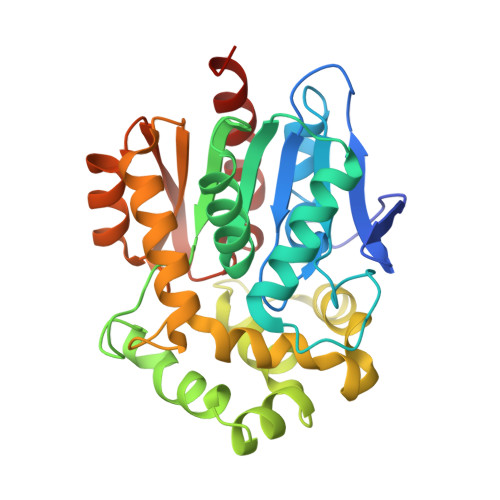HaloTag Engineering for Enhanced Fluorogenicity and Kinetics with a Styrylpyridium Dye.
Miro-Vinyals, C., Stein, A., Fischer, S., Ward, T.R., Deliz Liang, A.(2021) Chembiochem 22: 3398-3401
- PubMed: 34609782
- DOI: https://doi.org/10.1002/cbic.202100424
- Primary Citation of Related Structures:
7OND, 7OO4 - PubMed Abstract:
HaloTag is a small self-labeling protein that is frequently used for creating fluorescent reporters in living cells. The small-molecule dyes used with HaloTag are almost exclusively based on rhodamine scaffolds, which are often expensive and challenging to synthesize. Herein, we report the engineering of HaloTag for use with a chemically accessible, inexpensive fluorophore based on the dimethylamino-styrylpyridium dye. Through directed evolution, the maximum fluorogenicity and the apparent second-order bioconjugation rate constants could be improved up to 4-fold and 42-fold, respectively. One of the top variants, HT-SP5, enabled reliable imaging in mammalian cells, with a 113-fold fluorescence enhancement over the parent protein. Additionally, crystallographic characterization of selected mutants suggests the chemical origin of the fluorescent enhancement. The improved dye system offers a valuable tool for imaging and illustrates the viability of engineering self-labeling proteins for alternative fluorophores.
- Chemistry Department, University of Basel, NCCR Molecular Systems Engineering, 4002, Basel, Switzerland.
Organizational Affiliation:


















